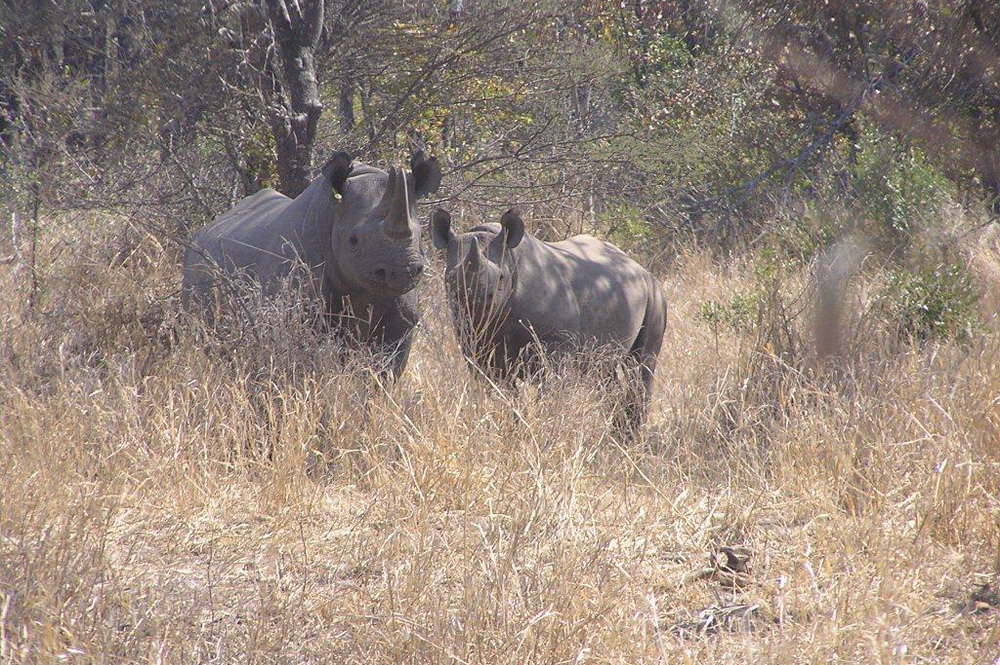For black rhinos, of which there are fewer than 5,700 remaining, poaching is a threat that could decimate their numbers and lead to extinction. As the risk persists across Africa, protecting the species is the most important activity for all rhino reserves and conservancies. In practice, this means securing habitats by improving fences and increasing foot patrols, creating intelligence networks throughout local communities and monitoring rhinos more closely than ever before.
Rangers, rhino monitors and conservation managers are at the heart of each of these activities. Every person involved is dedicated to seeing rhinos thrive into the future. It is an extremely challenging job; they have to cope with the shock of seeing a rhino carcass and patrol for long periods of time with very little for home comforts, not to mention the dangers of being in the bush, especially if armed poachers are nearby.
In Zimbabwe, which is home to the fourth largest population of black rhinos (more than 500 animals in total, as of 2017), we work with the Lowveld Rhino Trust (LRT). The Trust has played an important role in increasing the number of black rhinos across the Lowveld region, through engaging closely with local people; improving conservation education in schools, running competitions and establishing events that inspire everyone to get involved. LRT has also amplified their rhino monitoring efforts, seeing rhinos more often on patrols and recording the animal’s health and behaviour.
Unfortunately, as criminal syndicates move away from previously hard hit targets in other countries, poaching has intensified across the Lowveld in the past year. The conservancies around LRT have been subject to more and more incursions and as a result, both black and white rhino populations have declined in the region. So far in 2019, three emergency interventions have been required and sadly, each rhino involved had to be euthanised, after they were irrecoverably wounded by poachers’ gunshots.
This is difficult news for all of us working to stop poaching. But it is even harder for the rangers and rhino monitors. Coming across a rhino that has been wounded – mutilated even – and then had to lose its life in such a dreadful way is distressing, especially if you are an individual on the ground working to protect them.
Adding more frustration, legal actions following rhino poaching arrests in the Lowveld have been largely unproductive. Bail has frequently been given to suspects, allowing individuals to evade further arrest and appeal their sentences before any justice. In some cases, ranger teams working alongside the LRT team have responded to incidents, only to re-arrest individuals that they had previously encountered. Without doubt, this is demoralising for the rangers and rhino monitors. It shows just how many more challenges must be overcome to really stop poaching and improve procedures across the whole enforcement chain.
Despite the challenges, there have been exciting successes for LRT in the past year. The Trust hand-reared five rhino calves, going on to successfully re-release them to conservancy areas in April 2019! The five calves were also joined by a rescued orphan rhino, which was old enough to be translocated directly.
Your continued support of rhino conservation work, and the Lowveld Rhino Trust specifically, has helped to cover the costs of the nutritional and medical needs for these animals in care, and to make sure they are settling in well after they have been released. Thanks to Dublin Zoo and Stichting Wildlife, and all our rhino supporters, for your ongoing dedication to helping rhinos thrive.
Find out more about the Lowveld Rhino Trust.









